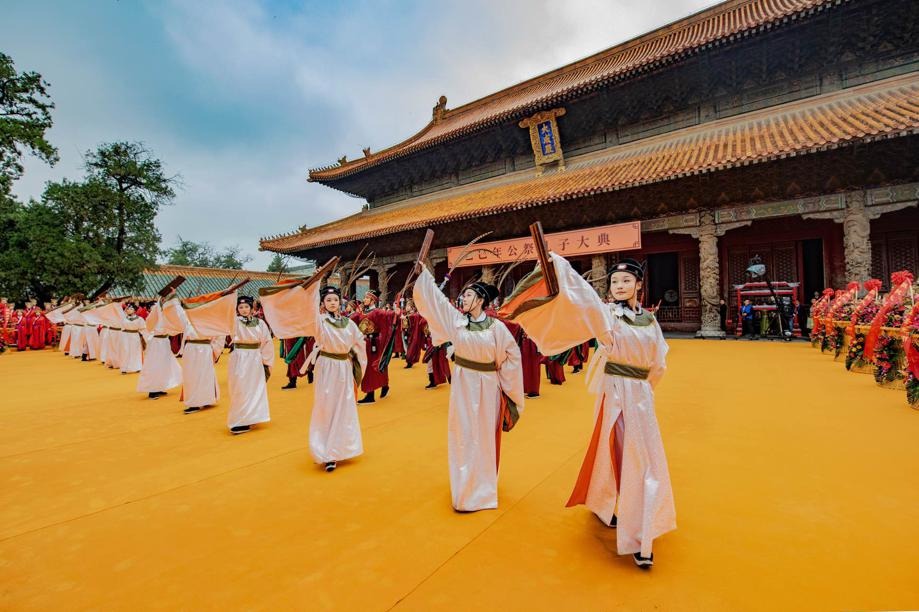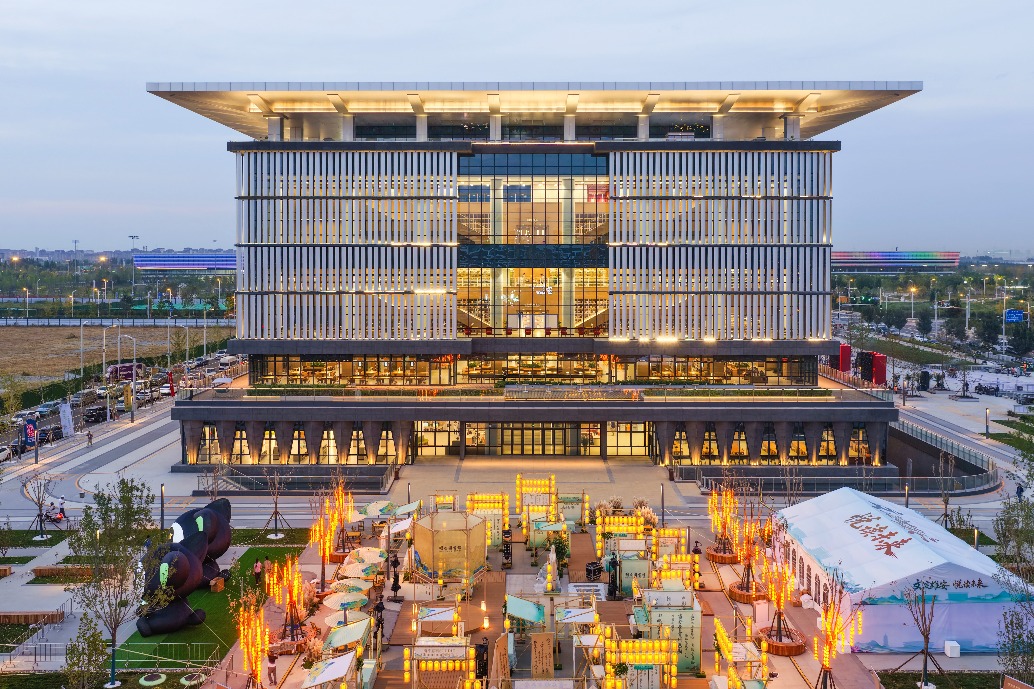Shanghai's intl business zone offers visa-free entry to invited individuals

Individuals from all countries with valid invitations can enter Shanghai's future Eastern Hub International Business Cooperation Zone without a visa or other entry permits, and they can stay for up to 30 days per entry and apply for extensions if needed, officials said on Friday.
In addition to the special 30-day stay policy, inbound people can equally enjoy existing visa-free policies during their trips from the business cooperation zone to Shanghai and surrounding areas, while people in China can enter the zone using the relevant pass, Wu Qunfeng, deputy director of the Shanghai Eastern Hub International Business Cooperation Zone administration, said during a news conference on Friday.
Occupying a planning area of 880,000 square meters, the zone is adjacent to the Shanghai Pudong International Airport in the east, and the Shanghai East Railway Station in the south. The eastern section has been designated as the pilot launch area.
The municipal government of Shanghai unveiled administrative measures on Tuesday for the zone, effective August 1. Earlier in February 2024, the State Council principally approved the general plan of constructing the zone in Shanghai, according to Wu.
By 2025, the pilot launch zone will be ready for closed operation, with its basic functions becoming operational. By 2028, the entire business cooperation area will achieve fully closed operation and complete the construction of key functional infrastructure. By 2030, the business cooperation area will be fully completed, according to the plan.
"The future business cooperation zone is positioned to become a new platform for international business exchange, a new hub for the convergence of resources and services, and a new nexus for advancing Yangtze River Delta integration," Wu said.
"It will feature three core functions: facilitating international business exchange, supporting high-end international exhibitions and events, and enhancing the quality of training services," Wu added.
"The administrative measures, which set out comprehensive regulations for the management of the business cooperation zone, consist of 30 articles across eight chapters, covering general provisions, governance structure, functional positioning, personnel management, goods and baggage control, supporting services, integrated safeguards, and supplementary provisions," Zhang Jie, deputy director of the Shanghai Municipal Commission of Commerce, said.
According to Zhang, the brand-new zone would be one of China's areas in terms of openness. In specific, enterprises' headquarters, multinational companies and international institutions are encouraged to conduct cross-border business activities in the zone, international exhibitions can be held independently by foreign organizations, professional training services such as large-scale medical device operation, aviation flight simulation and specialized equipment maintenance are encouraged to carry out in the zone, and high-level international exchange conferences are equally supported.
To facilitate the movement of people, baggage, and goods in and out of the zone, relevant authorities have introduced a series of innovative management measures.
The construction, management, and development of the zone require not only horizontal collaboration among local departments but also strengthened vertical coordination between central and local governments to achieve a unified effort.
"These measures highlight three key features: internationalization, facilitation, and coordination," Zhang added.
Zhang Yi, deputy head of Shanghai Customs, said the zone will serve as a key venue for the application of intelligent technologies.
"On par with the highest and best standards, digital and intelligent technologies would apply to innovate customs procedures to optimize experiences of customs clearance and offer more convenient and high-efficiency services for people-to-people exchanges within the zone," Zhang Yi said.
"Building the zone is a key mission entrusted to Shanghai by the central government, and Shanghai is tasked to serve the new development pattern and promote high-level opening-up to further enhance its position as the centers of economy, finance, trade, shipping and scientific technological innovation, as well as bring the city's international competitiveness to a higher level," Zhang Jie, deputy director of the Shanghai Municipal Commission of Commerce, said.
Since the general plan of the zone was approved by the State Council in February 2024, Shanghai has been exploring the construction of the zone at an accelerated pace, actively creating a market-oriented, law-based, and first-class international business environment, and striving to create an international business cooperation zone with outstanding functions and high convenience, Zhang Jie said.
- BRI annual Chinese character unveiled in SW China's Chongqing
- Hunan's Huaihua promotes its cultural cuisine
- Confucius' hometown celebrates the philosopher's birth anniversary
- China approves first Chikungunya virus detection kit
- Fujian Coast Guard organizes fleets to strengthen law enforcement patrols
- China re-elected as Category One member by global civil aviation body





































